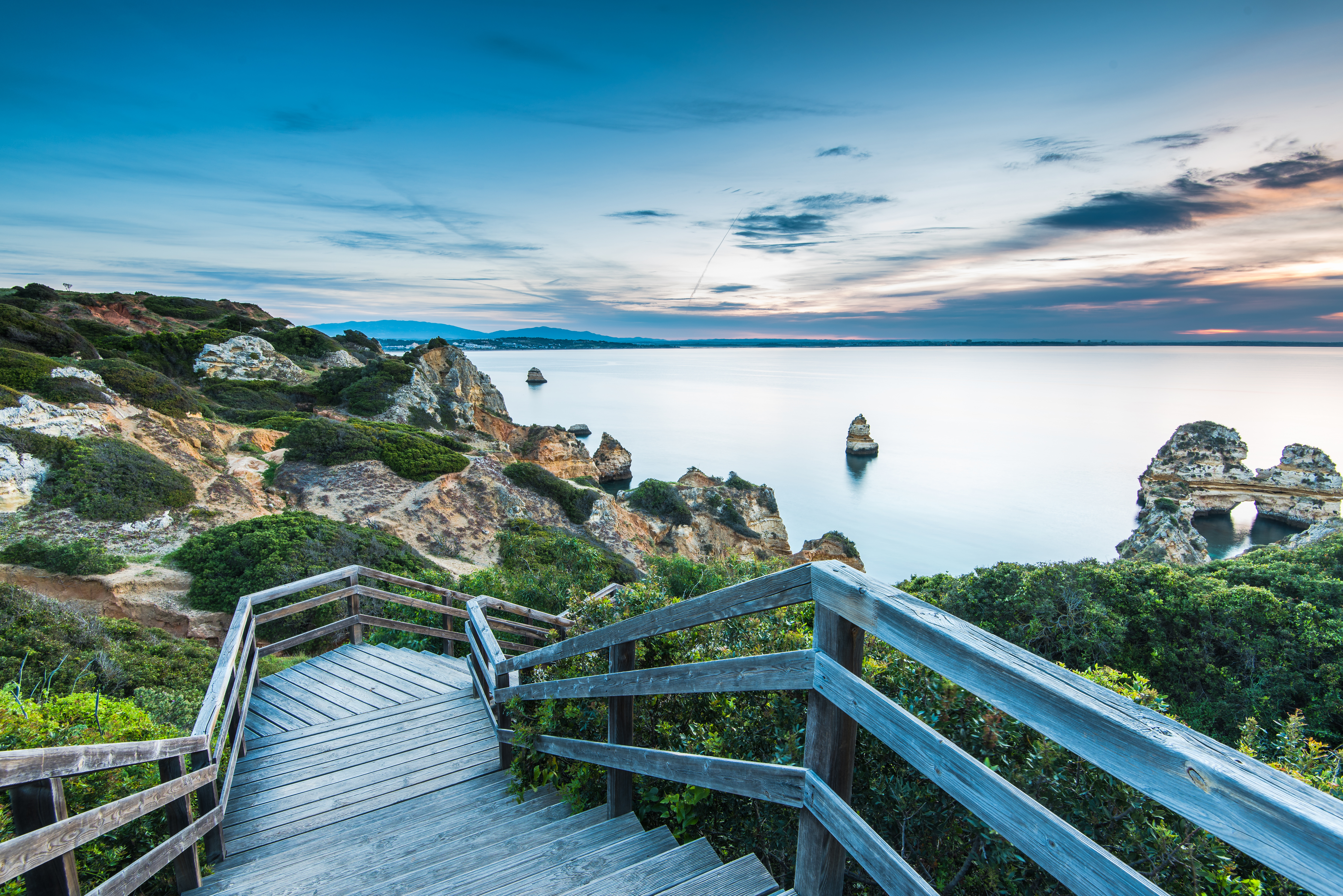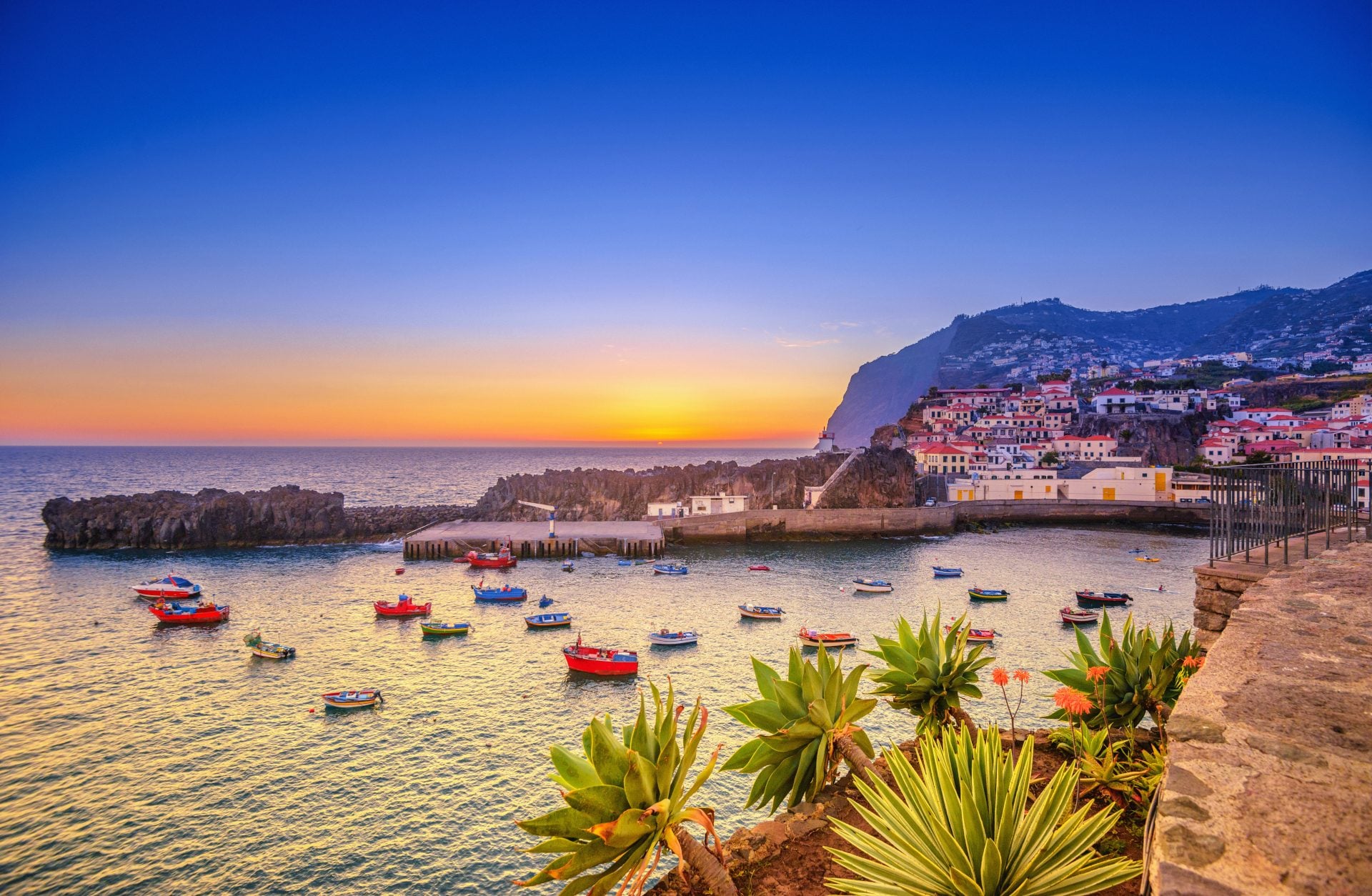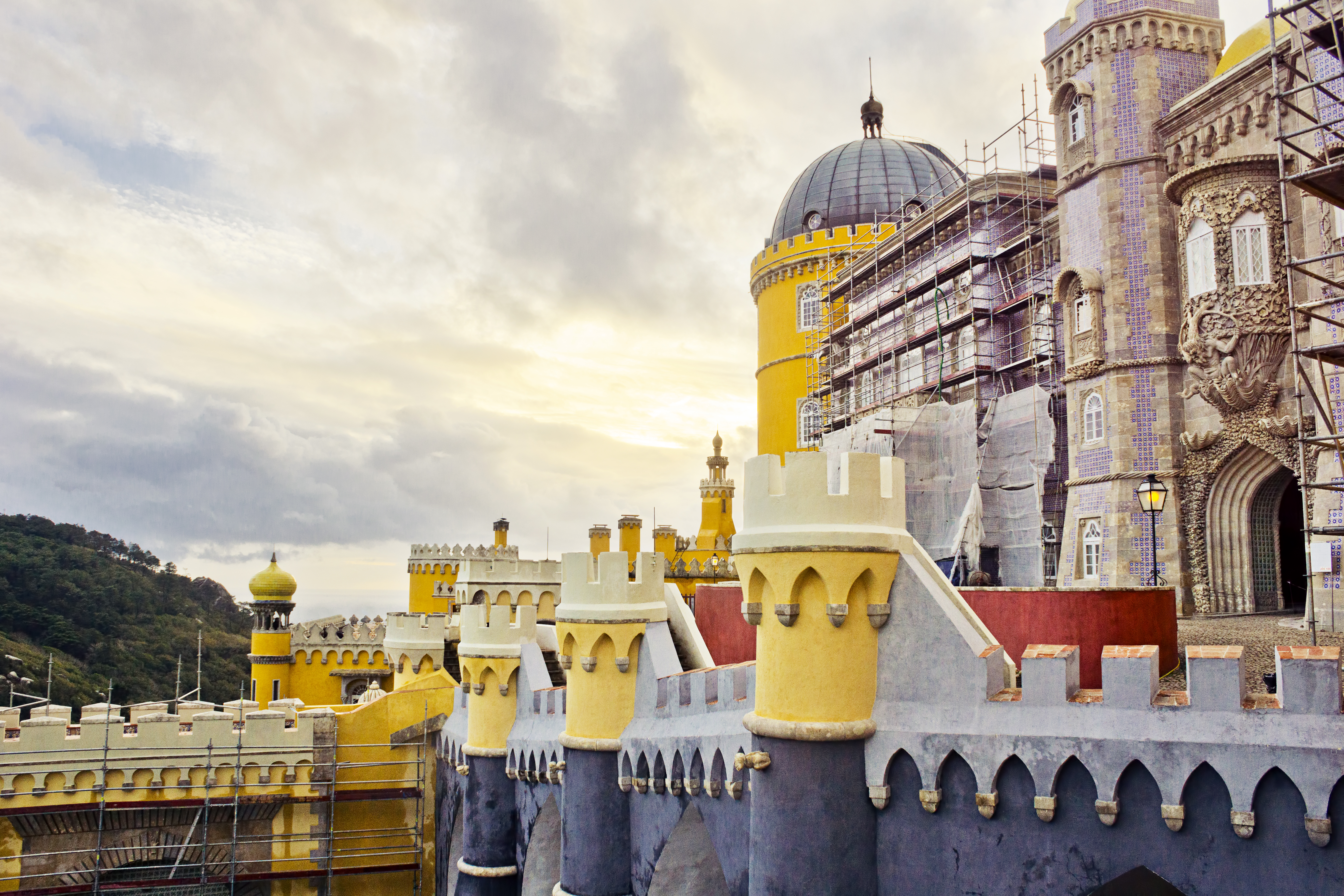To plan a Portugal trip, start by deciding on your travel dates and the regions you wish to explore. Your destination specialist can arrange the best accommodations, transportation, and guided tours to enhance your experience.
Discover Tailor-Made Portugal Vacations
Portugal is a land where history whispers through tiled streets, Atlantic waves crash against golden cliffs, and islands bloom with volcanic beauty
From the cobbled alleys of Lisbon and Porto to the lush vineyards of the Douro Valley to the sunlit beaches of the Algarve, every region offers its own story. And these aren't limited to the Portuguese mainland. For those craving something extraordinary, venture to the Azores, nine emerald isles in the North Atlantic, or the enchanting island of Madeira.
Featured Highlights
- Trying your hand at tile painting at the Tile Painting Museum in Lisbon
- Taking in a performance of fado music, the country’s haunting trademark sound
- Enjoying a private tasting in the port cellars of Porto, home of the fortified wine
- Swimming in volcanic tidal pools on the enchanting island of Madeira
- Hiking amid the aqueducts, lagoons and waterfalls of the lush, dramatic Azores
- Basking on the golden beaches of the gorgeous Algarve region, in Portugal's sunny south
Featured Portugal Trip Ideas
A tailor-made journey through Portugal means more than ticking sights off a list.Portugal blends tradition with a modern edge: Gaze out over Lisbon from Castelo Sao Jorge, sip fine port in Porto, hike the Seven Hanging Valleys Trail, or indulge in a soulful fado performance after sunset. “Portugal is one of Europe’s friendliest destinations,” says Destination Specialist Danette Jeoffroy. “From B&B hosts to bus drivers, everyone greets you with warmth, even if you don’t speak the language.”
Read More
Portugal Deluxe: Porto, Lisbon & the Algarve
The Algarve, Lisbon, Jeronimos Monastery, and PortoHighlights of Lisbon & Madeira
Lisbon, Jeronimos Monastery, and MadeiraDiscover Portugal: Lisbon to Porto
Lisbon and Jeronimos MonasteryWinter in the Algarve
The AlgarveAzores Hiking Adventure
Flavours & Vistas of Madeira
MadeiraDon't see the
perfect trip idea?
Request a custom quote.
Turn your travel dreams into reality with Goway. Our customized vacations take travellers to all corners of the world.
What do Goway's travellers say?
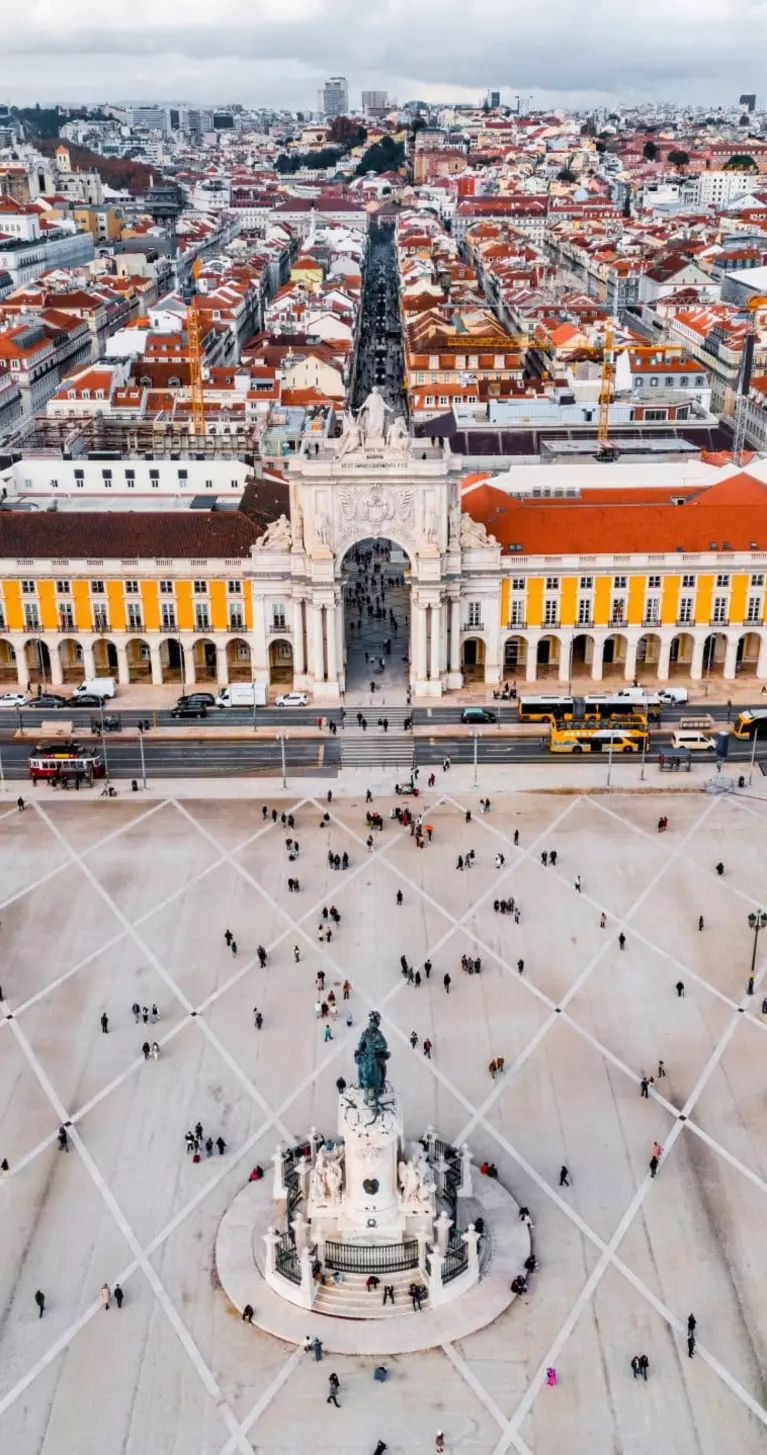
Get to know Portugal before you go.
Best Time To Visit
Portugal is truly a year-round destination, but the best time depends on your interests.
Spring (March to May) brings blooming flowers, mild weather, and lively festivals like that of Santo António in Lisbon.
Summer (June to August) is perfect for beach escapes in the Algarve and island adventures in Madeira and the Azores.
Fall (September to October) is harvest season in the Douro Valley—a dream for wine lovers—and comes with fewer crowds and warm seas.
Winter (November to February) offers cozy city breaks and sunshine in the southern part of the country.
Whatever the season, regional differences are worth noting: the north (Porto and Douro) tends to be cooler and wetter, while Lisbon and the Algarve enjoy sunnier, warmer conditions. Island destinations like Madeira and the Azores have microclimates, making them excellent for off-season escapes.
Plan around local celebrations like São João in Porto for an unforgettable cultural experience. For more details, check out our guide on the best time to visit Portugal.
What do the experts say?
The Azores are a hidden gem. They are nine volcanic islands in the Atlantic with lush forests and endless trails
Self-driving is one of the best ways to explore Portugal. The country is compact, well-connected, and perfect for combining cities, coast, and countryside in one trip
Portugal’s charm lies in its mix of stunning coastline, rich cultural heritage, and beautiful cities
First-time visitors should explore Porto, Lisbon, and the Algarve. It’s the perfect introduction to Portugal
Portugal is one of Europe’s friendliest destinations. From B&B hosts to bus drivers, everyone greets you with warmth, even if you don’t speak the language
Places To Go
Handcrafted journeys to our most popular places to visit in Portugal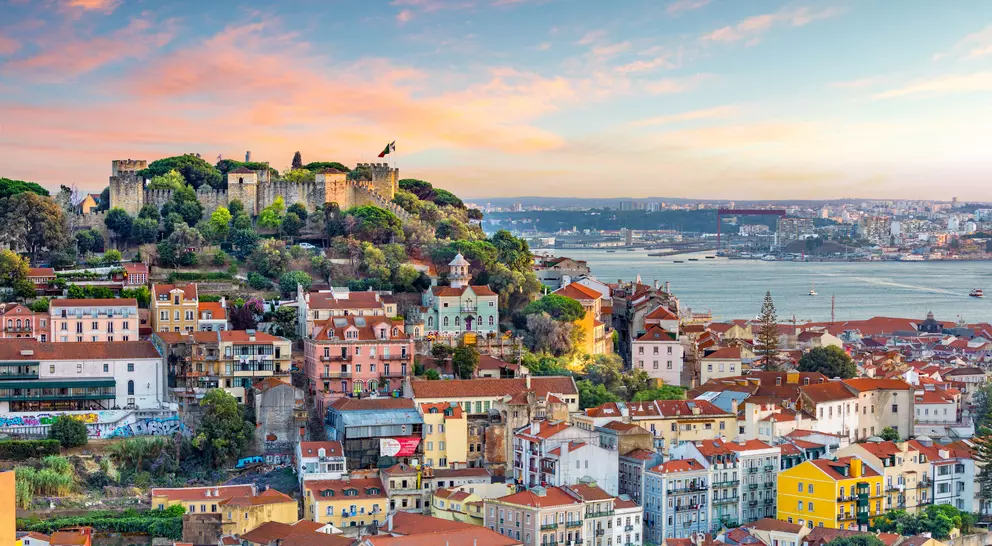
Lisbon
Lisbon is a captivating city sprawling across the steep Portugal hillsides overlooking the River...
Lisbon is a captivating city sprawling across the steep Portugal hillsides overlooking the River Tagus, with enchanting tree-lined avenues, verdant parks, historic neighbourhoods, and inviting...
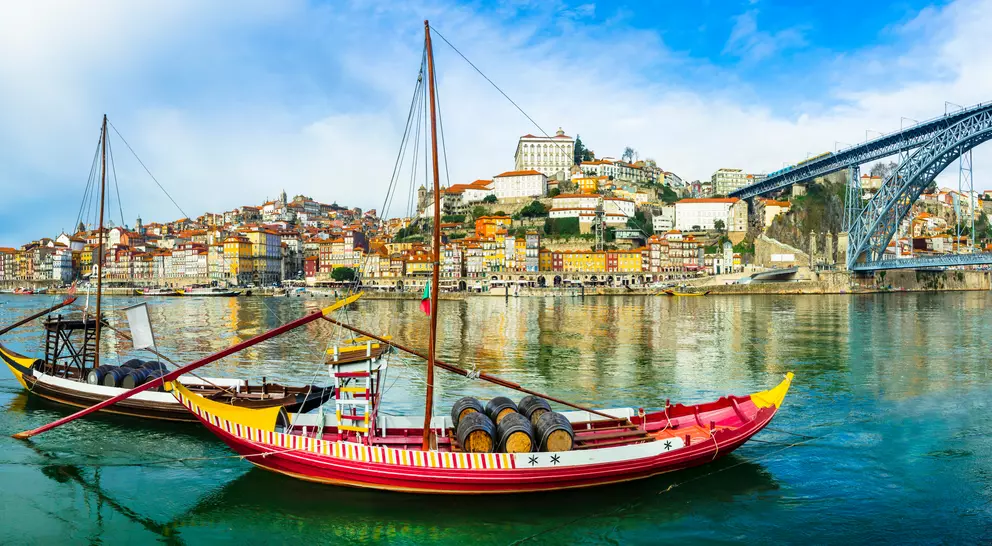
Porto
Porto, also known as Oporto, is Portugal's second-largest city, nestled along the Douro River...
Porto, also known as Oporto, is Portugal's second-largest city, nestled along the Douro River estuary, gracefully extending to the Atlantic Ocean. Its historic centre is recognized as a UNESCO World...
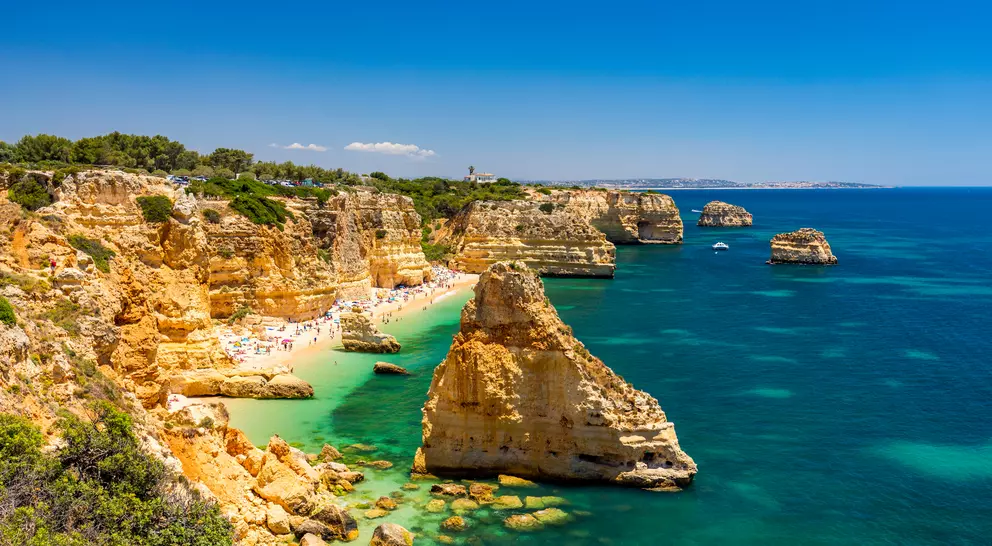
The Algarve
The Algarve is a year-round haven privy to Portugal's gentle climate and abundant sunshine, making...
The Algarve is a year-round haven privy to Portugal's gentle climate and abundant sunshine, making it a top destination on the Iberian Peninsula. The region is renowned for its pristine, sun-kissed...
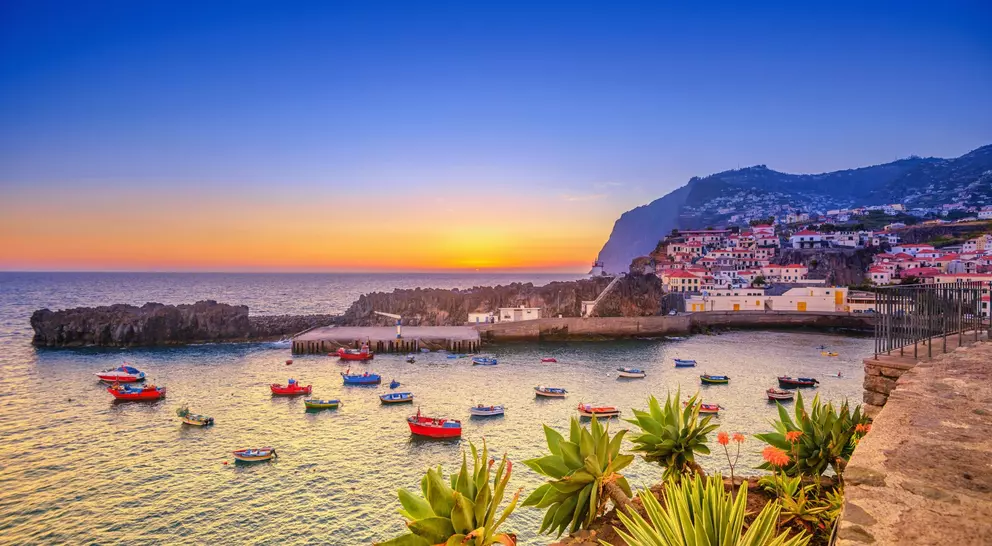
Madeira
The Madeira archipelago is a Portuguese treasure consisting of two main islands: Madeira and Porto...
The Madeira archipelago is a Portuguese treasure consisting of two main islands: Madeira and Porto Santo, each with unique natural beauty and a year-round springtime climate, nestled in the midst of...
Travel Styles
Explore Portugal by Travel TypeFrequently Asked Questions
How do I plan a trip to Portugal?
How much does a typical trip to Portugal cost?
Prices vary based on travel style and season, but Portugal is still one of Western Europe’s most affordable destinations, offering great value for money.
Where are the best vacation spots in Portugal?
The best place to vacation in Portugal depends on your interests. Portugal vacation packages offer diverse options, from the vibrant city of Lisbon to the stunning beaches of The Algarve, and the historic charm of Porto. For wine lovers, Douro Valley is the spot.
How do I plan a trip to Spain and Portugal?
When planning a trip to both Portugal and Spain, allocate enough time to experience both countries fully, typically at least two weeks. Start in major cities like Madrid or Lisbon and be sure to explore surrounding areas as well.
How should I vacation in Portugal?
Portugal tours can vary from relaxing coastal retreats to exploring cultural sites in cities. Consider renting a car for flexibility or joining small group tours to maximize your experience.
What should I pack for a trip to Portugal?
Pack comfortable walking shoes, layers for variable weather, a hat, sunglasses, and sunscreen. Include a mix of casual and smart-casual wear for both daytime and evening activities.
How long can I stay in Portugal?
Tourists from most countries can stay in Portugal for up to 90 days within a 180-day period without a visa. However, you need to apply to the European Travel Information and Application System (EITAS) prior to visiting. For longer vacation packages you may be considering, a visa may be required.
Is Portugal LGBTQ+ friendly?
Yes, Portugal is a safe and accepting country. Portugal is considered LGBTQ+ friendly, with a high equality index rating.
Do I need to tip in Portugal?
Tipping is customary but not mandatory in Portugal. Consider leaving a tip of five to 10 percent in restaurants if the service is satisfactory, and a few euros for your hotel staff or travel guide.
What currency does Portugal use?
Portugal uses the Euro (EUR). Credit cards are widely accepted, though having some cash is useful for small transactions.
Can I drink the tap water in Portugal?
Yes, tap water is safe to drink in Portugal in most areas. However, some people prefer the taste of bottled water, which is also readily available.
What is the best time of year to visit Portugal?
The best time to visit Portugal is during the spring (March to May) or autumn (September to October) when the weather is pleasant and the tourist crowds are smaller. These periods offer mild temperatures ideal for exploring cities and the countryside. Resort areas such as the Algarve and Madeira are popular year-round.
Are there any unique cultural experiences I should not miss in Portugal?
Portugal is rich in cultural experiences. Don't miss a live fado music performance, an intangible cultural heritage found primarily in Lisbon and Porto. Experience the pilgrimages of the holy city of Fatima or head to the island of Madeira to take in the Madeira Flower Festival or see the fireworks on New Year's Eve. Also, consider visiting during the Festival of St. John (Festa de São João) in Porto in June for a vibrant celebration with fireworks, music, and dancing. Exploring the historic centres of cities like Évora and Sintra is also highly recommended.
Unlock more by subscribing to our newsletter.
With our newsletter, you’ll get access to regular communications that inspire you and help you explore the world your way.
